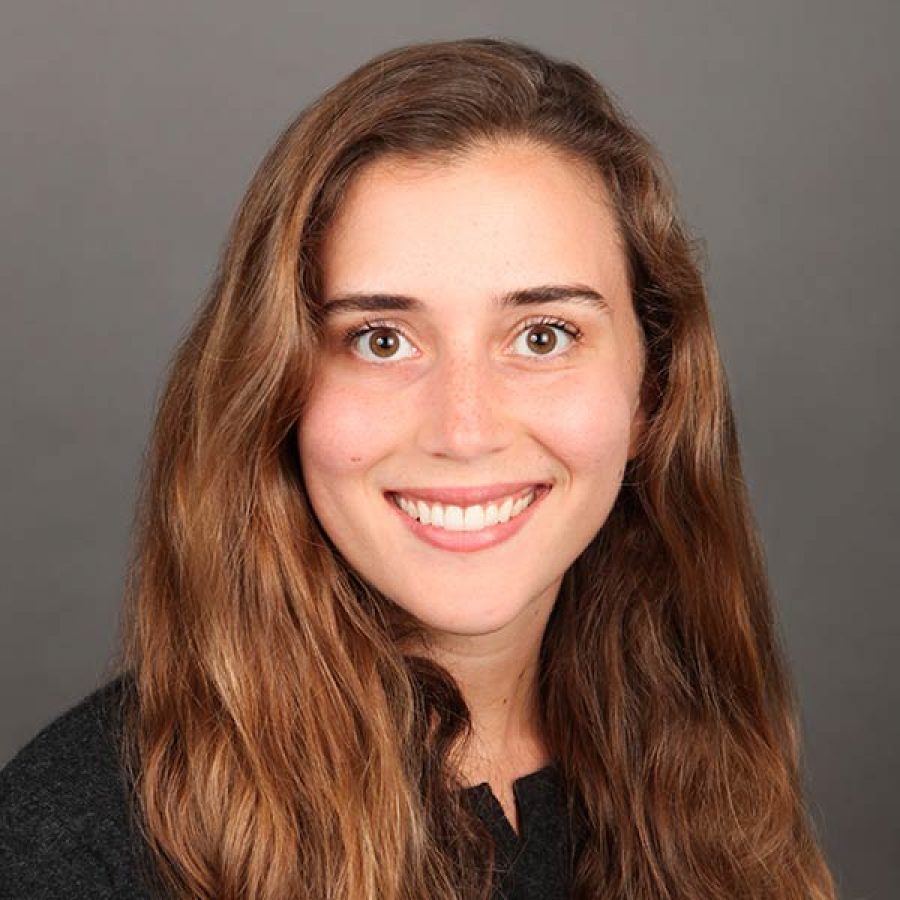Quick links
As a master of education (M.Ed.) student in Child Studies, you'll apply what you learn in the classroom as a member of a clinical or developmental research team, or in a field-based placement engaging in hands-on work with children, adolescents, and families. Uniquely suited for specific career paths and interests, both of Child Studies' two educational tracks prepare students to work as practitioners, researchers or interventionists with expertise in skillfully applying child developmental research to real-world problems.
Child Studies Program Overview
The Child Studies master's program offers two track options: the Clinical and Developmental Research Track and the Applied Professional Track. The program has been highly successful in placing students from the Research Track into competitive doctoral programs and research positions in areas of child psychology and clinical science. Additionally, the Applied Track has a more-than twenty-year history of placing graduates as teachers and school support staff, child life specialists, behavior specialists, healthcare workers and non-profit professionals across varied work settings.
Through the program, you'll select a primary focus between one of two tracks:
- Clinical and Developmental Research Track: designed for students whose academic and professional goals include preparation for further graduate study, such as doctoral studies in clinical, developmental, or educational psychology, or positions in adolescent research, this program option is designed to strengthen students' backgrounds for success in these settings. Students are matched with a faculty mentor and provided opportunities to participate on a research team in an area of substantive interest. Research methods and statistics coursework and completion of an independent research project appropriate for submission for publication are further requirements; areas of concentration allow focus in clinical and developmental psychology and other related fields of interest.
- Applied Professional Track: designed for students whose academic and professional goals include preparation for careers working with children and families, this program option offers students opportunities for scholarly didactic and in-depth, supervised professional experiences in child and family service organizations. Students are matched with relevant agencies and organizations within the community to gain hands-on experiences in practicum settings. These experiences are complemented by foundational coursework, wherein students have flexibility to design their program of study around areas of substantive interest and relevant career paths. The Applied Professional Track also allows interested students to pursue certification as child life specialists. These students can complete ACLP-required coursework for child life certification in the program while also completing a 100-hour hospital-based child life practicum program in the Nashville community during their course of study. Specializing in applied behavior analysis is also an option within the Applied Professional Track.
Child Studies Program Outcomes
Overall, historic evidence indicates that within four months of graduation from the Child Studies master’s program (from both tracks and all concentrations), 97 to 100 percent are employed or attending graduate school.
Clinical and Developmental Research Track
This track has a more than 10-year history of successfully placing graduates in highly competitive doctoral programs in areas such as clinical, developmental and educational psychology. More than 90 percent of students who have applied to doctoral programs following the program have secured admission. A sample of recent graduate placements includes the following:
- Ph.D. Candidate, Clinical Psychology, University of California, Los Angeles, California
- Ph.D. Candidate, Clinical Psychology, McGill University
- Ph.D. Candidate, Developmental Psychology, University of Pittsburgh
- Ph.D. Candidate, Developmental Psychology, Vanderbilt University
- Ph.D. Candidate, Counseling Psychology & Applied Human Development, Boston University
- Ph.D. Candidate, Psychology and Peace Studies, University of Notre Dame
- Psy.D. Candidate, Clinical Psychology, Palo-Alto Pacific Graduate School of Psychology-Stanford University PsyD Consortium
- Ph.D. Candidate, Experimental Psychology, Oxford University (England)
Applied Professional Track
Over the past 20 years, graduates from this track have been successful in securing varied positions as leaders in child and family service roles. A sample of recent graduate placements includes the following:
- Behavior Interventionist, Freedom Preparatory Academy, Memphis, Tennessee
- Foster Care Counselor, United Methodist Family Services, Richmond, Virginia
- Program Specialist, Nurture the Next, Nashville, Tennessee
- Program Coordinator, National Family Voices
- Program Coordinator, United to Learn, Dallas, Texas
- Community Resilience Coordinator, Tennessee Department of Health, Office of Strategic Initiatives, Nashville, Tennessee
For students pursuing child life careers, 100 percent have been successfully placed in child life internships, attained child life specialist certification and secured employment as child life specialists in hospitals across the US and Canada. Similarly, students pursuing certification as applied behavior analysts are employed as BCBAs throughout the country and abroad.
Sample career outcomes from these Applied Professional Track concentrations include the following:
- Certified Child Life Specialist, Johns Hopkins Children's Hospital, Baltimore, Maryland
- Certified Child Life Specialist, Cincinnati Children’s Hospital, Adaptive Care Team, Cincinnati, Ohio
- Board Certified Behavior Analyst, Autism ETC, Nashville, Tennessee
- Board Certified Behavior Analyst and owner, All Star Autism Services, Kansas City, Missouri
- Board Certified Behavior Analyst, Cultivate Behavioral Health and Education, San Antonio, Texas
Explore how to use research design and data analysis for the social good with our digital guidebook.
Child Studies Degree Program Facts
Program Directors: Vicki Harris, Ph.D. (Applied Professional Track),
Nina Martin, Ed.D. (Clinical and Developmental Research Track)
Admissions Coordinator: Ally Jacobs
Child Life Academic Coordinator: Jessika Boles, Ph.D., C.C.L.S.
Admission Term: Summer
Credit Hours: 36
Application Dates
-
Application Deadline 1
January 3
-
Application Deadline 2
February 3
-
Rolling Admissions
After February 3*
*We will continue to accept applications after Feb 3, but applications will be evaluated for admission and scholarships as space and funds are available.
Request Information
Child Studies (M.Ed.) Program Curriculum
The 36-hour program consists of 24-30 credit hours of core curriculum coursework and 6-12 credit hours of elective coursework that are individually tailored to your personal interests and professional goals.
In addition to the required courses, you'll integrate child development research and theory with effective practice through a range of field experiences. Through these experiences, you will develop expertise as consumers and producers of scholarly research. Both program tracks include a concentration of focus and a mentored practicum experience (described below).
Within the Applied Track, students pursuing child life certification complete a 100-hour hospital-based child life practicum at a local children's hospital and receive credit hours for completion of a child life internship.

